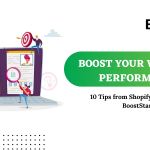Keyword research for homepage ?
Keyword research for your homepage is a crucial step in optimizing your website for search engines like Google. Here’s how to perform keyword research and incorporate relevant keywords like “SEO,” “Shopify,” and “Shopify Website” into your homepage content while avoiding keyword cannibalization:
Step 1: Identify Your Main Keyword
Start by identifying the main broad keyword that best represents your homepage. This keyword should encapsulate the primary focus of your website. For example:
If you sell bicycles, your main keyword could be “buy bicycles online.”
If you sell plus size clothing, your main keyword might be “plus size clothing.”
Step 2: Use Keyword Research Tools
Utilize keyword research tools like Google Keyword Planner, SEMrush, Ahrefs, or even Google’s auto-suggestions to find related keywords and phrases that people are searching for. Look for variations and long-tail keywords related to your main keyword. For instance:
“Online bicycle shop”
“Trendy plus size clothing”
“Shopify website optimization”
Step 3: Analyze Keyword Difficulty and Search Volume
Evaluate the competitiveness (keyword difficulty) and search volume of the keywords you’ve identified. Focus on keywords with a reasonable search volume and lower competition, especially for your homepage.
Step 4: Avoid Keyword Cannibalization
Ensure that your homepage’s main keyword doesn’t overlap with keywords targeted on other pages of your website. For instance, if you have a collection page targeting “buy bicycles online,” refrain from using the same keyword on the homepage.
Step 5: Incorporate Keywords Naturally
Incorporate your chosen keywords naturally into your homepage content. Craft a compelling title, heading, and introduction that feature your main keyword and related keywords.
Step 6: Create High-Quality Content
Develop high-quality content that provides value to your visitors. Discuss your products, services, and why your Shopify store is the go-to destination for your chosen keyword. Highlight unique selling points and benefits.
Step 7: Use Meta Tags
Optimize your meta tags, including the meta title and meta description, with your target keywords. This helps improve your website’s click-through rate in search engine results.
Step 8: Monitor and Update
Regularly monitor your homepage’s performance in search engine rankings. If needed, make adjustments to your content or keywords to improve your SEO strategy over time.
By following these steps, you can perform effective keyword research and incorporate relevant keywords into your homepage content, optimizing it for SEO while avoiding keyword cannibalization. This approach will help your Shopify website rank higher in search engine results and attract more organic traffic.



